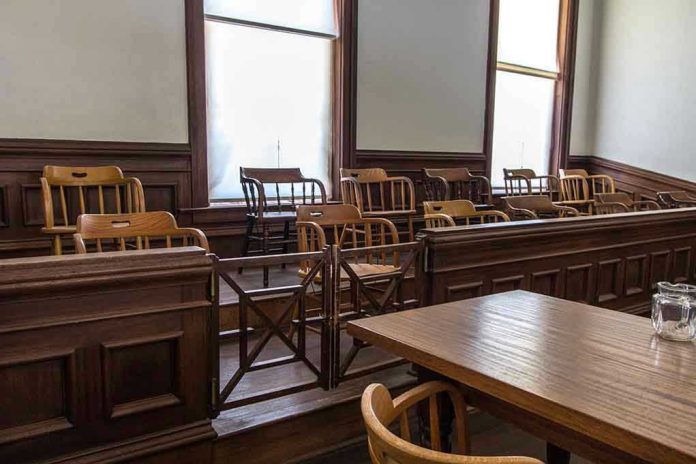
A sandwich thrown in protest becomes a symbol of free speech in a high-profile legal battle.
Story Overview
- Sean Charles Dunn acquitted after throwing a sandwich at a federal agent during a protest.
- The jury found the act protected under the First Amendment, not an assault.
- The incident highlights tensions over federal law enforcement presence in D.C.
- The case sets a precedent for symbolic protest in legal context.
The Incident and Its Context
During a period of heightened political tension, Sean Charles Dunn, a former Justice Department employee and Air Force veteran, found himself in the spotlight after an unusual protest act. In Washington, D.C., amidst protests against the presence of federal agents, Dunn hurled a sandwich at a federal Border Patrol agent. This act, although seemingly trivial, sparked a significant legal debate about the limits of protest and the boundaries of criminal assault.
The incident occurred during the Trump administration’s controversial deployment of federal agents to U.S. cities, including D.C., to manage civil unrest. This decision was met with significant opposition and frequent protests. Dunn’s action was not a random outburst but a deliberate protest against the federal presence, an act aimed at drawing attention to what he and many others saw as federal overreach.
Legal Proceedings and Acquittal
Prosecutors initially sought a felony indictment against Dunn, but their efforts were repeatedly thwarted as a grand jury declined three times to indict him. The case eventually proceeded to a misdemeanor trial. During the trial, the defense argued that the sandwich throw was a symbolic act of protest, protected by the First Amendment. The jury, after considering the evidence, acquitted Dunn, concluding that the act did not constitute assault.
The jury’s decision reflects a critical standpoint on how the legal system views minor acts of symbolic protest. The acquittal not only absolved Dunn but also sent a message regarding the protection of free speech rights, even when expressed through unconventional means. The case’s outcome underscores the judicial system’s reluctance to criminalize protest actions that do not result in actual harm.
Implications for Protest and Law Enforcement
The acquittal of Sean Charles Dunn has broader implications for both protesters and law enforcement. In the short term, the verdict is seen as a victory for protest rights, potentially emboldening others to use symbolic acts to express dissent. In the long term, this case could influence how similar acts are prosecuted, especially concerning the distinction between symbolic protest and criminal assault.
Federal law enforcement agencies may need to reassess their approach to handling minor protest incidents. The case highlights the delicate balance between maintaining order and respecting individuals’ rights to free expression. For the legal community, this verdict may serve as a reference point in future cases involving protest-related actions.
The Broader Debate
The public response to the case has been divided. Some view the prosecution as an example of overreach and a potential threat to protest rights. Others argue that any form of assault on law enforcement, regardless of its perceived severity, should be addressed to maintain order and respect for authority. This debate reflects the ongoing tensions surrounding the role of federal law enforcement in local jurisdictions, particularly during periods of intense political polarization.
Legal experts and First Amendment scholars have weighed in on the significance of the verdict. The case is likely to be cited in discussions about the limits of protest and the protections afforded to symbolic acts under the First Amendment. The defense’s argument that the agent himself treated the incident humorously, with references to a “felony foot long” lunchbox, resonated with the jury and illustrates the subjective nature of interpreting such acts in a legal context.
Sources:
Jury finds D.C. ‘sandwich guy’ not guilty of assaulting officer



